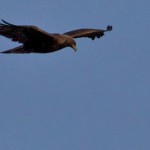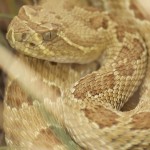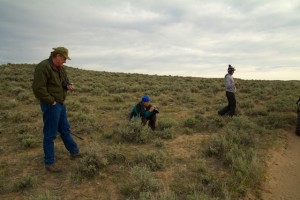 Once again, the field season has flown by at lightning speed. I’m still wrapping my brain around the fact the crew is leaving us in a week- it seems like just a few days ago I was driving into town to meet them and lead them up to camp. Yet here we are, with just a few days to get as much data as possible, proof all the data, and do as much take-down of the equipment as possible. Gail, Anna, and I will be here for another week or so, but there are some big tasks, like pulling up the thousands of meters of microphone cables we have out there, that are much easier to tackle with a larger group.
Once again, the field season has flown by at lightning speed. I’m still wrapping my brain around the fact the crew is leaving us in a week- it seems like just a few days ago I was driving into town to meet them and lead them up to camp. Yet here we are, with just a few days to get as much data as possible, proof all the data, and do as much take-down of the equipment as possible. Gail, Anna, and I will be here for another week or so, but there are some big tasks, like pulling up the thousands of meters of microphone cables we have out there, that are much easier to tackle with a larger group.
We are trying to wrap up our robot experiments, but it has been somewhat frustrating going over the past couple of days. For two consecutive days, we had golden eagles flush the birds on the lek before we could run an experiment. Seeing an eagle is always a treat, especially seeing one power low over the lek and wheel after fleeing grouse, but at this point in the season, I think a more welcome sight would be Gail lifting the edge of the blind up to readmit the fembot after a successful trial. We’ve completed second experiments at Chugwater, Monument, and half of Cottontail, but the last section of Cottontail has eluded us at least 3 times now, and we would love to have a third repetition on all the leks to help us better capture the variation in response among individuals, treatments (interested versus disinterested behavior), leks, and time in the season.
The statewide manager of sage-grouse programs, Tom Christiansen, came out with us yesterday. He enjoyed actually getting to see a lek up close (Wyoming Game and Fish biologists are generally looking from a distance, and only staying at each lek long enough to obtain an accurate count). While the dramatic eagle attack precluded him seeing the robot interacting with real birds, Gail was able to do a small demo before we packed up our gear. He also got to see our first rattlesnake of the year- a prairie rattler that Anna and Julia saw crossing the road.


